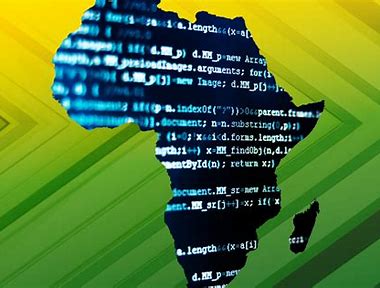By Rebecca Aboagyewah Oppong | Veebeckz Tech Media | Published on 26th May, 2025
In the heart of Accra, a young woman swipes through her tablet to access a cloud-hosted course on data analytics. In northern Uganda, farmers receive voice alerts in their local dialects warning of an incoming drought. In a Nairobi slum, a health worker logs into a mobile dashboard that monitors disease outbreaks in real-time. These are not scenes from the distant future—they are snapshots of digital transformation unfolding in developing countries today.
Digital transformation, the integration of digital technologies into all areas of society, is often painted with a broad brush: slick e-governance portals, gleaming fintech apps, and smart cities buzzing with sensors. But in Africa—and in many developing countries—digital transformation is less about glamour and more about relevancy, resilience, and revolution from below. It is a slow burn ignited by necessity, community ingenuity, and the promise of leapfrogging decades of underdevelopment with innovation.
In Ghana, the story begins with mobile connectivity. As of 2024, over 90% of Ghanaians own a mobile phone, with smartphones becoming increasingly affordable due to imports from brands like Tecno and Itel. For many, the smartphone is their first and only gateway to the internet. This mobile-first reality has shaped the country’s digital transformation path in profound ways. From mobile money to digital education, services are being designed with mobile in mind, not as an afterthought.
One of the clearest areas where digital transformation has taken hold is financial inclusion. The success of MTN Mobile Money (MoMo) in Ghana is often cited as a regional benchmark. What began as a convenient tool for peer-to-peer transfers has become a full-blown digital banking ecosystem. Today, market women in Madina use MoMo not just to receive payments, but to pay suppliers, take micro-loans, and contribute to susu (rotational savings groups). With fintechs like Zeepay, Fido, and Hubtel entering the scene, financial services are being redesigned for those previously excluded from the formal banking system. This evolution is not just digital—it is developmental.
But financial technology is only the tip of the iceberg. Digital transformation is sweeping across healthcare, agriculture, education, and public administration. Take mPharma, a Ghanaian-founded health tech company that manages medical inventory for pharmacies and clinics using cloud-based platforms. By digitizing drug stock data, mPharma helps prevent shortages and reduce fake drugs in circulation—a problem that has haunted West African health systems for decades. In 2020, during the COVID-19 pandemic, the Ghana Health Service launched the COVID-19 Tracker App, a locally developed platform that allowed citizens to self-report symptoms, aiding in early detection and response. These digital solutions may not be glamorous, but they are lifesaving.
In education, the digital divide is still deep, but there are beacons of transformation. In Kumasi, students at Kwame Nkrumah University of Science and Technology (KNUST) attend hybrid lectures using Google Classroom and Zoom. In less connected areas like Bono East or parts of the Upper West Region, NGOs and startups are using offline learning tools like RACHEL (Remote Area Community Hotspot for Education and Learning) to deliver digital content without the need for constant internet access. Veebeckz Tech Hub’s Byte Explorers program, for instance, equips children with early coding skills using solar-powered devices and localised apps. Here, innovation adapts to context, not the other way around.
Agriculture, the backbone of many African economies, is also being disrupted digitally. In Kenya, the DigiFarm platform by Safaricom enables farmers to access inputs, training, and markets via mobile phones. Ghana’s own AgroCenta connects smallholder farmers to buyers through a digital marketplace, eliminating middlemen and ensuring fairer prices. With climate change accelerating, digital weather alerts sent via USSD or voice call—like those from Farmerline—are helping farmers plan smarter and avoid disaster.
Yet, the path to digital transformation is not without its potholes. Infrastructure remains a major barrier. In many rural regions across Ghana and Sub-Saharan Africa, power cuts are frequent, internet connections are slow or non-existent, and devices are still prohibitively expensive for many families. Even in urban centers, data costs remain high relative to income. Digital literacy is another challenge. While young urban dwellers may be tech-savvy, many older adults—and those with limited formal education—struggle to use apps or navigate platforms, no matter how well-designed.
Policy and governance are also double-edged swords. Governments are investing in national digital strategies—Ghana’s Digital Economy Policy, for instance, aims to promote digitization across sectors. But digital transformation requires more than speeches and frameworks. It needs execution, monitoring, and inclusivity. When public e-services like e-passport systems or online tax filing are introduced without adequate user training or rural rollout plans, the digital gap widens rather than closes.
Moreover, cybersecurity and data protection have become urgent issues. As more citizens interact with digital platforms, their personal data becomes vulnerable. In 2023, Ghana established the Cyber Security Authority, a vital step, but public awareness and institutional readiness are still catching up. African nations must strike a careful balance: promote digital access while protecting digital rights.
Despite the challenges, the potential is profound. In no other era has it been possible for a young person in Accra, Cape Town, or Kigali to design a mobile app, deploy it on the cloud, and serve customers across continents—all without owning a single physical storefront. That is the transformative power of the digital age.
But for digital transformation to truly serve developing countries, especially in Africa, it must be contextual, inclusive, and sustainable. We need homegrown platforms that speak our languages, apps that run offline, payment systems that work with both smartphones and feature phones, and public policies that put people—not just data—at the center.
Africa’s digital transformation may not mirror Silicon Valley’s story. And that’s a good thing. Our journey is uniquely ours: rooted in tradition, shaped by constraint, but blooming with innovation. It is a slow burn—but when it catches, it will light up the continent.
“We don’t need to copy digital transformation. Africa is writing its own code.”
